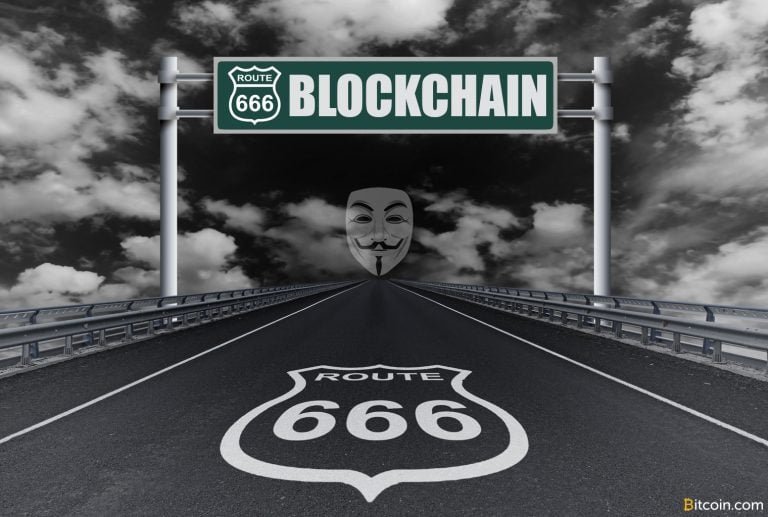2022-5-2 20:00 |
Bitcoin stands out because it is a digital bearer asset that gives full private property rights to its users, and development must carefully protect this aspect.
Good fences make good neighbors.
Clear boundaries separate responsibility and make clear who is due what. With good boundaries, we can act more decisively because we know what we own. Without it, nobody feels responsible so it gets plundered like an appetizer plate which inevitably comes down to that last piece which keeps getting split in half. We call what we own property and the rights of ownership, property rights.
The ability to really own something is foundational to civilization. Those that own something and are assured of property rights are much more likely to take care of it. Think about how much cleaner a typical Uber driver’s car is versus a standard New York City taxi.
In addition, those that can have property rights over something they build are much more likely to build it. Property rights incentivize building and maintaining of property, which means that more things are built and more things are improved. The reason is because the owners of the property get the benefits of ownership, financial or otherwise.
The lack of property rights, or even confusion about who owns what, leads to decivilization. Stuff that no one owns, or “everyone” owns tends to fall into disrepair, because anyone that takes care of the property gets at best a fraction of the benefits that a true owner has. This is called the freeloader problem because the ones who do the work don’t benefit nearly as much as they would their own property. Think about the last time you cleaned up a public park versus the last time you cleaned your own car. You probably clean your own car more than a public park because you own it.
Fuzzy PropertyConfusion around property sneaks in without our being consciously aware. For example, banking introduces a subtle undermining of property rights through custody. If you hold a balance at a bank, the money isn’t really yours. Of course, you can use the money with the bank’s permission. But if the bank doesn’t like your transaction? You can’t use the money. If the government says that the money was obtained illegally? You can’t use the money. If Congress passes legislation to give a haircut to all bank balances? You won’t have the money.
Depositing your money at the bank is an act of trust, which is why we call them a trusted third party. Given that they screw more people over more than Dan Larimer, it may seem strange that so many people trust banks. But this is because we really have no choice in the fiat system. A checking account is as artificial a necessity in today’s world as a college degree.
Trusted third parties like banks are really ways to undermine property rights or a fuzzing of boundaries around property. Property, when custodied by someone else, is now shared and permission is required. That permission is granted most of the time to make it seem like we still own the property. The reality is that their permission is a way to control and monitor what we’re doing. Banks are essentially deputized for government surveillance through know-your-customer laws.
We have a similar situation with online content. Our data lives on Twitter or Google, for example, and they clearly own the servers, but it’s supposedly our data. Our accounts on those services thus have very fuzzy boundaries. Generally, the fuzzy boundaries are always to the tech companies’ advantage. They conveniently tell us that it’s their property when they want to kick you off their platform and that it’s your property when you say something that would get them in trouble. They use the fuzzy boundaries to their advantage, moving their fences to take as much of your digital data as they can profit from.
Even more undermining of property rights is this weird concept of public property. The concept itself is an oxymoron as the word property comes from the Latin word, propria, which means one’s own. “Public” property is owned by everyone, which all too often means that it’s not really owned by anyone, but exploited by those in charge. “Public” property is a honeypot for cronyism and embezzlement. Compounding this is that the property itself in the form of taxes is collected by force. “Greater good” is just a convenient excuse to rob us and plunder the proceeds.
Taking other people’s property by force is theft and theft is what undermines civilization. Public property, in other words, is an easy means of theft.
BitcoinThe reason why BItcoin is revolutionary is because it’s property that’s truly owned. It’s very hard to confiscate, unlike other forms of property. The absolute ownership of value that we have in Bitcoin is unprecedented and cause for great hope, particularly as inflation and confiscation proliferate in the fiat world.
Bitcoin’s true self-sovereignty over property and value is also why so many Bitcoiners encourage self-custody and not leaving coins on exchanges. Exchanges are trusted third parties and keeping bitcoin on an exchange essentially puts restrictions on your Bitcoin usage. We know, for instance, that many exchanges refuse to allow coins to be withdrawn to CoinJoins. They can also become insolvent, in which case whatever coins they have will be split among all the customers. All customers essentially have some equity claim in some UTXOs. Not your keys, not your coins is not just a pithy saying, it’s really a statement about true property rights over your Bitcoin.
This is also why altcoins are not different from fiat money. They have a central committee that decides whether some smart contract executions are legitimate or not. Most smart contract executions are considered legitimate. But some smart contract executions are called “hacks” and are censored by miners, confiscated by exchanges, or reverted by developers.
The Poly Network’s $600 million “hack” from several months ago is an excellent example. The nominal amount of $600 million was made non-transferable by the controllers of the Poly Network. The central committee of Poly made sure the coins couldn’t move by contacting miners and exchanges. The “hacker” settled for a mere $500,000, which means that at least from a market perspective, the permission granted by those in charge of the Poly Network was worth more than 99.9% of the nominal amount. All altcoin networks are permissioned because they’re centralized.
The undermining of property rights is one of the consequences of centralization, which altcoins and fiat money clearly have. One way to explain Bitcoin’s uniqueness versus altcoins is that Bitcoin gives true property rights while altcoins and fiat money only give the illusion of property rights. In reality, altcoins and fiat money are confiscatable by the people in charge. Much like in “The Wizard of Oz,” the illusion is powerful and deceives many.
CovenantsWhich brings us to the topic of covenants. For those that are unfamiliar, covenants are a way to restrict the usage of Bitcoin in some way. For example, a typical covenant might say the equivalent of “you can spend this UTXO to one of these three addresses, but not any other.” In a sense, we already have very limited covenants, like timelocks on Bitcoin, which say the equivalent of “you cannot spend this UTXO until this time.” You can think of covenants as being conditional, where the benefits of the money are limited to the conditions laid out by the payer. They undermine property rights to that money.
This isn’t always a bad thing. Covenants are useful for security, especially against some form of the $5 wrench attack. If you choose to restrict your own property so it’s harder for people to steal, that’s a perfectly fine use case. For example, restricting the UTXO you own to only be allowed to be sent to a multisig address after a year might be a good security strategy.
What concerns me about covenants is that they can be used to fuzz property boundaries and undermine what makes Bitcoin so great. Any restriction on property ultimately undermines the property rights of the recipient. Could a government use this to undermine bitcoin bought on exchanges? Could there then be two sets of Bitcoin, one permissioned by the government and one black market?
BIP119Which brings us to the current controversy in Bitcoin, OP_CTV or BIP119. This is the proposal by Jeremy Rubin to add a new OP code which will enable covenants. There’s much to be said about the activation parameters, competing covenant proposals and even who should have a veto, but that’s not my concern here. The technical merits are a whole separate discussion. The more important consideration for me, as a user, is the potential for undermining my property rights.
For developers, the potential cool stuff they could build is the big consideration and covenants definitely let developers build really cool stuff. For instance, there’s something called coinpools, which let each UTXO be collectively owned by many people. This would make Bitcoin massively scalable as a single UTXO could potentially have millions of users owning a piece of it and each user could exit from the UTXO for the amount they own to another UTXO trustlessly.
Yet for users, we have to ask the more practical questions of whether this is actually good for the money we already have. Could covenants be used for evil purposes where it would make it easier for governments to enforce a sort of on-chain KYC? If so, what would that look like and how likely is it? What are our mitigations against such an attack and how difficult would it be to resist? Will fuzzing of property rights through a covenant OP code result in centralization?
Trade-OffsJust because we can do something doesn’t mean we should. What’s alarming to me about the covenants proposal is that I keep hearing claims that there’s “wide developer agreement” that covenants are desirable. Perhaps to developers, they are. But what about the users? Ultimately, it’s the users that have control because they run the nodes.
The conversation that really needs to take place is whether the benefits outweigh the potential risks. What I’ve been hearing for the past three years are all the ways in which covenants will make Bitcoin better. But what I haven’t heard too much about is in what ways covenants can be used to undermine what I believe to be the most important property: our ability to truly own Bitcoinit and not be subject to censorship or confiscation.
This is a guest post by Jimmy Song. Opinions expressed are entirely their own and do not necessarily reflect those of BTC Inc or Bitcoin Magazine.
origin »Bitcoin price in Telegram @btc_price_every_hour
Bitcoin (BTC) на Currencies.ru
|
|
























